Where Is Katie Standon(Genie) Now in 2025?A Look at Her Life
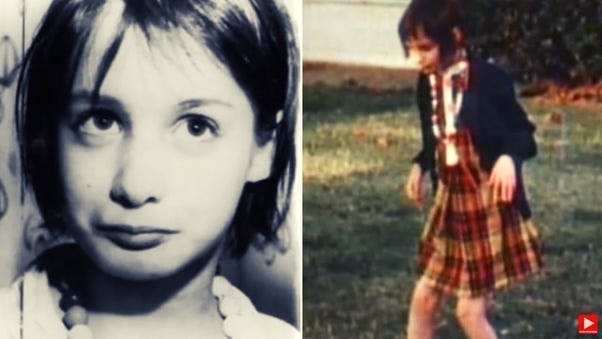
The life of Katie Standon, whose real name is Genie, is one of the most tragic and captivating stories of survival, making people around the world ask, “Where is Katie Standon (Genie) now?” From the moment her story was revealed to the public, it became a focal point of discussions about child abuse, neglect, and the lasting impact of such experiences on human development. The story of Genie has not only captured the attention of psychologists, but it has also touched the hearts of many people who follow stories of perseverance and resilience.
Key Insights:
- Genie’s Early Life: Katie Standon, born in 1957, is the subject of an unsettling tale that started long before the world knew her story. Her real name, Genie, reflects her life, where she faced unimaginable challenges. For the first 13 years of her life, Genie was subjected to extreme isolation. She was kept locked in a small room in her family’s home, confined to a chair, and was rarely allowed any interaction with others. She had very limited exposure to speech, normal human interactions, or even basic socialization, resulting in severe developmental delays.
- Genie’s Resilience: Despite the profound difficulties she faced in her early years, Genie’s survival and journey through the trauma of her early life have been seen as an incredible act of resilience. After being discovered and taken into care, her case became a symbol of hope for many who study child psychology, even as it also highlighted the negative impact of severe abuse and neglect.
- Current Status in 2025: As of 2024, Genie, now known as Katie Standon, resides in an adult foster care facility in Southern California. While exact details of her living arrangements are not disclosed, it is understood that she is receiving the care and support she needs, and reports indicate that she is living contentedly in this supportive environment.
- Respecting Privacy: It’s important to note that the details about her current life are not widely available, as they are protected to respect her privacy. Given the complex history of her life and the public attention she has received over the years, it is understandable that the decision was made to keep her current situation private.
- Genie’s Age: Katie Standon, or Genie, is 66 years old in 2025. While her life has been marked by hardship, she continues to be an individual with a story that teaches valuable lessons about the impact of childhood experiences on a person’s development.
Is Katie Standon (Genie) a Real Person?
Yes, Katie Standon is indeed a real person. While the name “Katie Standon” was used in the movie Mockingbird Don’t Sing, her true name is Genie. The decision to change her name was made to preserve her identity and protect her privacy, as her life had already been exposed to the public in ways that many felt were invasive. The movie used a fictional name to shield her from the further prying eyes of the public, but the core of the story—the traumatic events that shaped her life—remains true.
Genie’s real-life story is not just the inspiration for a film, but a profound and heartbreaking reminder of the psychological effects of childhood isolation and neglect. Her case became a central topic of research and discussion in developmental psychology, as her behavior and development offered insights into the effects of extreme neglect during critical periods of growth.
Her journey illustrates a larger, often painful conversation about the psychological and emotional needs of children, particularly in their early developmental years, and what can happen when those needs are not met. Though her name may not be widely known by the public, Genie’s story is an important part of the conversation about the impact of trauma and isolation on human development.
Where is Katie Standon (Genie) Now in 2025?
As of 2024, Genie—who is still alive and now 66 years old—is living in a specialized foster care facility for adults in Southern California. After spending her formative years in unimaginable isolation, Genie was eventually placed into foster care after her rescue, where she received medical and psychological treatment. Her story became well-known as the case of “Genie” because of the sensational attention it garnered, and she became a subject of study for those interested in child psychology.
However, after the initial attention and the controversy surrounding her care, Genie’s life became more private. She is now reported to be living a peaceful life, away from the media and the public eye. While her exact location and the specifics of her living situation are not made public to protect her privacy, it is known that she is in a safe and supportive environment where professionals help to meet her daily needs. The fact that Genie has lived through so much trauma and yet found some peace in her later years is a testament to her resilience and the care she has received.
Her current situation is one of relative tranquility, though it’s important to respect her privacy and not speculate too much on the details of her life now. What is known is that she is being well taken care of, and her current status is far removed from the tragic, isolating years that once defined her existence.
What Happened to Katie Standon from Mockingbird Don’t Sing?
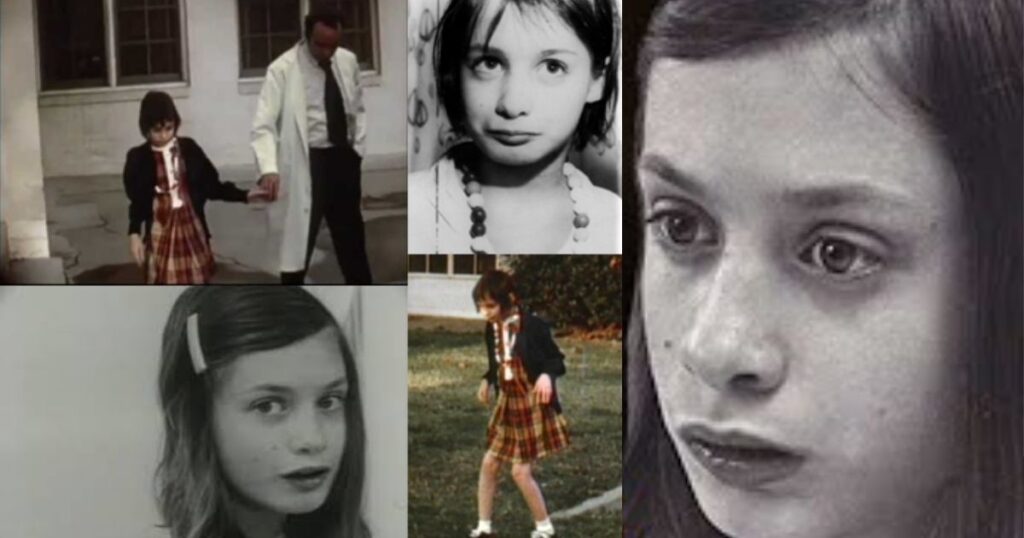
Katie Standon, the character portrayed in Mockingbird Don’t Sing, is a fictionalized version of the real-life woman known as Genie. The film dramatizes the story of a girl who was raised in extreme isolation, deprived of basic human interaction, and suffered immense developmental delays as a result. The character of Katie in the movie struggles to speak and connect with the world, a reflection of the real-life difficulties faced by Genie.
Genie’s story is an incredibly poignant one. In her case, the extreme isolation imposed by her father—who kept her locked in a small room for the majority of her early years—had devastating effects. When Genie was discovered, she was unable to speak, had limited motor skills, and lacked any socialization skills. The situation was both tragic and shocking, and it brought attention to the dangers of extreme neglect and abuse.
While Mockingbird Don’t Sing was based on her life, it is important to note that the real-life woman behind the character of Katie was not just a subject of a film, but a real individual whose life experiences have left a lasting impact on the field of psychology and on public awareness of child abuse. Her struggles continue to resonate with those who have studied her case and those who care about the well-being of vulnerable children everywhere.
Katie Standon’s Parents and Early Life
Genie, born in 1957, had a difficult start in life due to her parents’ challenges. Her father, Wes Standon, was an abusive and harsh individual who inflicted physical and emotional harm on his family. His behavior created a toxic environment in the household, and he was particularly neglectful toward his daughter, Genie.
Genie’s mother, Louise Standon, struggled with her own limitations and was unable to protect her children from the severe abuse. As a result, she was largely dependent on her husband and could not intervene in the harsh treatment Genie faced. This lack of intervention from her mother led to Genie’s intense isolation during her early childhood.
From as early as 20 months old, Genie was confined to a small room in their home. Her father’s cruelty and neglect left her with little to no human interaction or stimulation, both of which are crucial for a child’s development. This isolation continued for almost the entirety of her childhood, from the age of 20 months until she turned 13 years old.
Genie’s isolation took a severe toll on her physical and mental development. By the time she was discovered, she had not learned to speak, walk, or care for herself. She displayed behaviors like rocking back and forth and hand-flapping—common signs seen in individuals who have experienced severe neglect or trauma.
The Tragic Fate of Katie Standon’s Father
In a devastating turn of events, Genie’s father, Wes Standon, took his own life before he could testify in the abuse trial. His death meant that he would not face the legal consequences of his actions. As a result, Louise Standon, Genie’s mother, was declared not guilty of abuse, as the legal system deemed her to be a victim of her husband’s control and manipulation.
Genie’s Rescue and Initial Recovery
In 1970, a turning point came when Genie’s mother and brother, recognizing the extent of her developmental delays, decided to seek help. They reached out to social services, and Genie was taken to the Children’s Hospital in Los Angeles. When doctors examined her, they were shocked by her condition. Despite her actual age, she appeared much younger due to her lack of growth and development, which was attributed to years of neglect.
Upon her arrival at the hospital, Genie became the subject of intense research, with experts from various fields, including linguists, psychologists, and therapists, working together to assess her development. They hoped to help her make progress, and there was optimism, as medical professionals believed there was still potential for Genie to learn and improve.
Genie’s Recovery: Slow but Remarkable
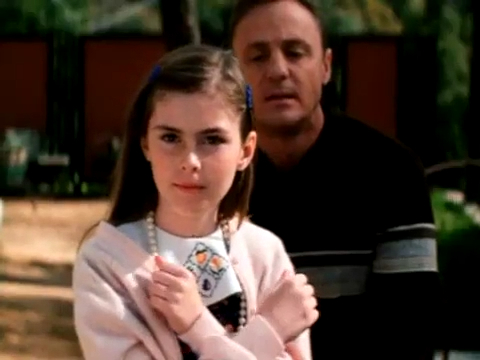
Genie’s journey toward recovery was gradual and difficult. Under the care of the medical team, she began to learn basic skills. She eventually learned to walk and perform basic self-care tasks. More importantly, after intense language therapy, she began to acquire language, though the process was slow.
However, Genie’s ability to fully develop language was hindered by the “critical period hypothesis,” which suggests that there is a window of time during early childhood when the brain is most receptive to learning language. Since Genie missed this critical window due to her extreme isolation, she was never able to speak fluently, despite significant progress.
Genie’s case sparked a heated debate in the scientific community. Some experts believed her story supported the critical period hypothesis, while others argued that the human brain is more adaptable than previously thought and can develop new skills even after early deprivation.
Later Life and Ongoing Privacy
As Genie aged, she continued to face personal challenges. Social interactions and complex language comprehension remained difficult for her. She also suffered from anxiety and depression, likely stemming from the trauma of her early years. In the 1990s, Genie was moved to a group home that specialized in caring for adults with developmental disabilities.
Today, Genie is in her late 60s and is receiving care in a facility dedicated to meeting the needs of people with special developmental requirements. For her privacy and well-being, the specifics of her current living situation are not made public. Despite her difficult past, Genie has found a level of stability and care in her life.
Genie’s case has had a significant impact on child psychology and education. Her life has highlighted the importance of early childhood experiences and the severe consequences of neglect and abuse. Her story has also contributed to the understanding of the brain’s plasticity and its ability to adapt even after periods of deprivation.
The Impact of Genie’s Story
The remarkable and tragic story of Genie has become a significant case study in understanding child development. It not only brought attention to the lasting effects of child abuse and isolation but also shed light on the brain’s remarkable capacity for recovery, even in later stages of life.
Her journey serves as a testament to the resilience of the human spirit, showing that, despite unimaginable hardship, there can still be progress, learning, and hope. However, it also reminds society of the importance of early intervention and the need for proper care to help children grow and thrive in a nurturing environment.
The Movie “Mockingbird Don’t Sing” on Katie Standon’s Life
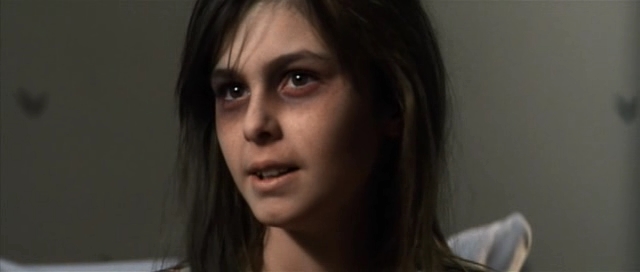
The 2001 film Mockingbird Don’t Sing is based on Genie’s life, though it uses a fictionalized name—Katie Standon—for legal reasons. The film, directed by Harry Winer, portrays the story of a young girl who suffered extreme isolation and neglect, similar to Genie’s experience.
In the movie, Katie Standon, played by actress Tarra Steele, is a young girl who had been confined to a room with little human interaction. The story follows her rescue and initial rehabilitation under the care of experts who hope to help her regain basic skills, such as language. The film presents the difficulties Genie faced in learning to communicate and adapt to the outside world.
Mockingbird Don’t Sing was critically acclaimed, winning awards such as the best screenplay at the Rhode Island International Film Festival. The film portrayed not just the challenges Genie faced but also the larger ethical concerns surrounding her case, such as the role of researchers and the ethics of studying human trauma for scientific purposes.
The fictionalized nature of the film, with characters’ names altered for legal reasons, reflects the sensitivity surrounding Genie’s real identity. In the movie, the character of Susan Curtiss, who worked closely with Genie, is portrayed under the name Sandra Tannen.
The story of Katie Standon, while fictionalized for the screen, remains a powerful testament to the resilience of the human spirit and the importance of early intervention and care for children suffering from abuse and neglect.
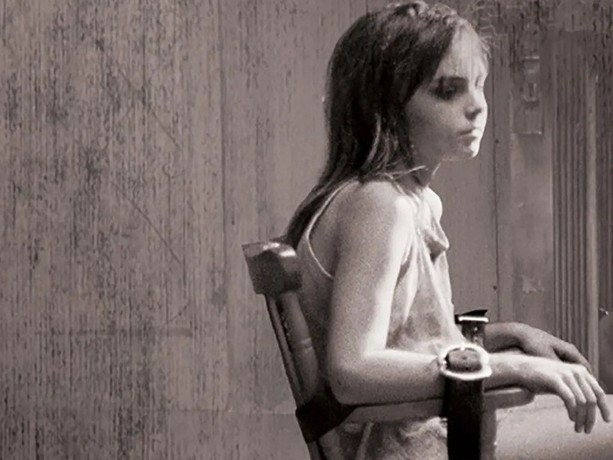
Mockingbird Don’t Sing Cast
The movie “Mockingbird Don’t Sing” features a talented cast portraying the real-life individuals involved in the story of Genie, whose tragic early life became a subject of public interest. Below is a detailed list of the cast members and their corresponding real-life counterparts:
| Actor | Role | Real Life Counterpart |
|---|---|---|
| Tarra Steele | Katie Standon | Genie (pseudonym) |
| Melissa Errico | Sandra Tannen | Susan Curtiss |
| Kim Darby | Louise Standon | Genie’s mother |
| Joe Regalbuto | Dr. Norman Glazer | David Rigler |
| Sean Young | Dr. Judy Bingham | Jean Butler (Ruch) |
| Michael Lerner | Dr. Stan York | James Kent |
| Laurie O’Brien | Beverly Glazer | Marilyn Rigler |
| Jack Betts | Wes Standon | Genie’s father |
| John Valdetero | Wayne Lacy | Jay Shurley |
| Michael Azria | Billy Standon | Genie’s brother |
| Rachel Grate | Jill | Genie’s foster sister |
Is Katie Standon Still Alive in 2025?
Yes, Katie Standon, also known by the pseudonym “Genie,” is still alive as of 2025. At the time, she is in her late 60s, specifically 66 years old. Despite her challenging past, Genie continues to live and receive support, though specific details about her life are kept private for her protection and well-being.
Conclusion: Katie Standon’s Current Status in 2023
As of 2023, Katie Standon (Genie) resides in a foster care facility for adults with developmental disabilities in Southern California. While exact details about her daily life are kept confidential to respect her privacy, the available information indicates that she is receiving appropriate care and has shown remarkable resilience throughout her ongoing journey.
Her story serves as a testament to human strength and the ability to overcome unimaginable adversity, despite the tragic circumstances of her early years. Katie’s progress is an inspiring reminder of the importance of early childhood intervention and care.
FAQs
Is “Mockingbird Don’t Sing” Based on a True Story?
Yes, “Mockingbird Don’t Sing” is based on the true story of Genie, a girl subjected to extreme isolation and abuse during her early years. The film is a dramatized account of her life, with names changed for legal reasons, but it accurately portrays the challenges Genie faced and the efforts to rehabilitate her after her rescue.
What is the Movie About Katie Standon?
The movie centers around Katie Standon, portrayed as Genie, who suffered severe isolation and neglect during her childhood. Born in 1957, she was confined to a small room for most of her early life, deprived of human contact and normal developmental experiences. The film follows her discovery, rescue, and the rehabilitation efforts to help her catch up socially and intellectually, addressing complex themes of human resilience, adaptation, and the effects of early trauma.
Where can I Watch “Mockingbird Don’t Sing”?
“Mockingbird Don’t Sing” is available on various streaming platforms, and you can also find options to purchase or rent it digitally or on DVD. Availability may differ based on your location, so it’s a good idea to check popular streaming services for current access.
Who is the Father of Katie Standon?
Katie Standon’s father, Wes Standon, is portrayed as an abusive and domineering figure in both real life and the movie. He subjected his family, including Genie, to years of physical and emotional abuse, which played a critical role in the extreme isolation and neglect she suffered.
Who Was the Girl Locked in a Room for 12 Years?
The girl locked in a room for 12 years refers to Katie Standon, whose real name is Genie. Born in 1957, Genie spent the first 13 years of her life confined to a small room, deprived of social interaction, education, and stimulation. The film “Mockingbird Don’t Sing” depicts her traumatic early life, rescue, and subsequent struggles, highlighting the profound effects of neglect on a child’s development.
How Old is Katie Standon Now?
As of 2024, Katie Standon (known by the pseudonym “Genie”) is 67 years old. She was born in 1957, and despite the challenging and traumatic circumstances of her early life, she continues to live in a foster care facility for adults in Southern California.
Who is the Movie Mockingbird Don’t Sing Based On?
The movie Mockingbird Don’t Sing is based on the true story of Katie Standon, also known as Genie. It portrays her harrowing childhood, where she was isolated and abused by her father, Wes Standon, for the first 13 years of her life. The film explores her rescue, the subsequent efforts to integrate her into society, and the psychological and developmental challenges she faced as a result of her severe isolation.



